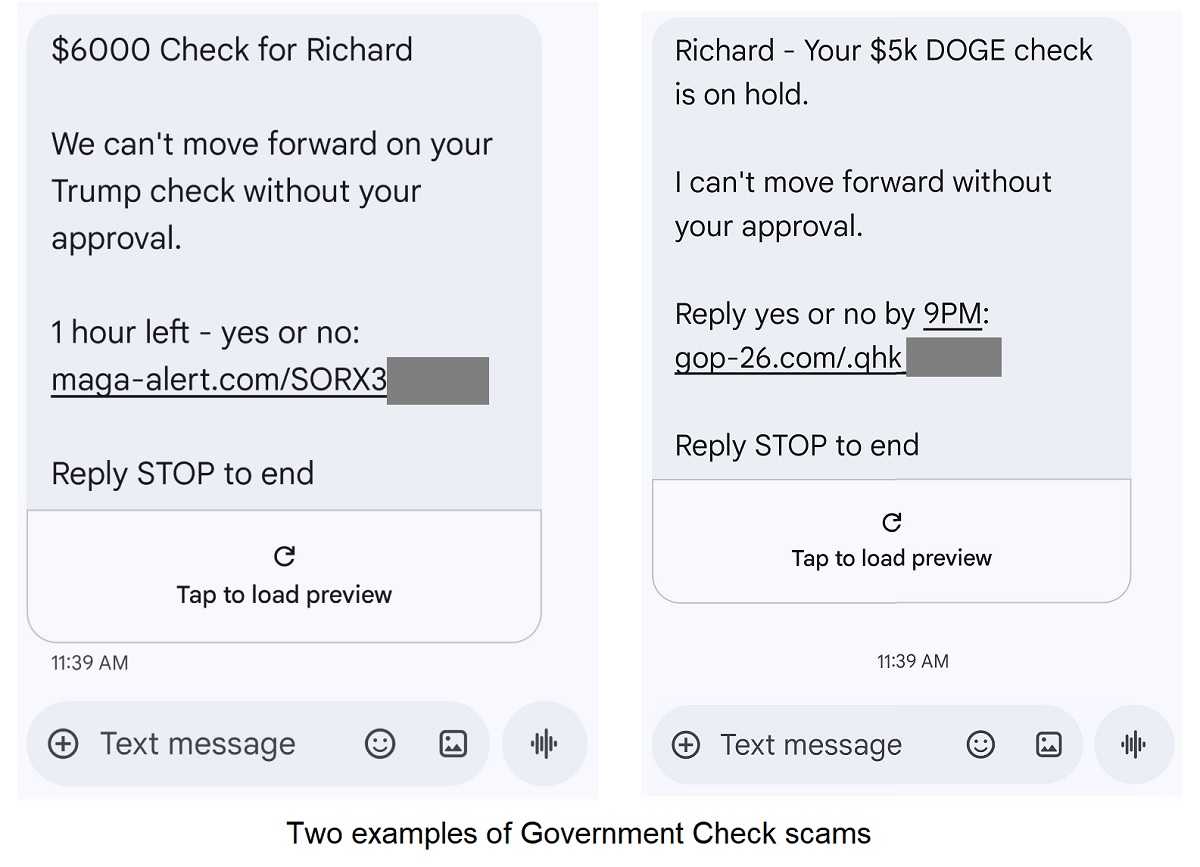$5,000 Government Subsidy Text, Don’t Fall for the DOGE Scam
By: Jim Stickley and Tina Davis
November 10, 2025
Your phone just buzzed with a message promising you’re eligible for a $5,000 federal government subsidy—money supposedly saved by the Department of Government Efficiency (DOGE). Spoiler Alert! It’s a scam. Law enforcement agencies across the country are sounding the alarm about this and warning people to stay clear of it.
The scam text claims you are now eligible for a $5,000 federal government subsidy from funds saved by cuts made to the federal budget by DOGE. It tells you to reply with Y to claim it, close the message, open it back up, and then click the link "TechRadar." It makes it easy to get your payment and promises that once you provide your personal information, a check will be deposited into your bank account or mailed in one to two business days. That’s too good to be true, isn’t it? In a word, “Yes.”
In fact, while the idea was floated around in the government, it never really came to fruition. There are no DOGE refund, dividend, stimulus, or other checks thus far.

Watch For These Words
“You earned that $5,000 DOGE check. Say YES before it’s gone,” the texts read. Click-through pages become more aggressive: “DOGE SAVED YOU $1 TRILLION—AND YOU SAID NO"! Our records show you may have said ‘NO’ to your Trump Savings Check. Another version claims your check is on hold and they cannot move forward with processing without your approval.
Email versions claim to be from “your assigned personal agent from the Department of Government Efficiency (DOGE), which has been authorized by the federal government to issue tax refunds to eligible citizens from funds recovered from improper government expenditures.” Some emails use the official DOGE logo to appear legitimate. Obviously, they are not.
How To Protect Yourself
Never click links in unsolicited texts about government checks or refunds. Federal agencies don’t contact you via text or email requesting personal information. In fact, they’ll send an old-fashioned letter. If you get an official information in email from the government, the domain it comes from is “.gov.”
Don’t reply to these messages—even with “STOP.” If you can report them as spam, do so and then block them. If unsure, contact your local law enforcement agency directly. Report scams to the FTC and IC3. The more information they have, the more likely they can do something to put a stop to them before the scammers put a stop to your functioning finances.